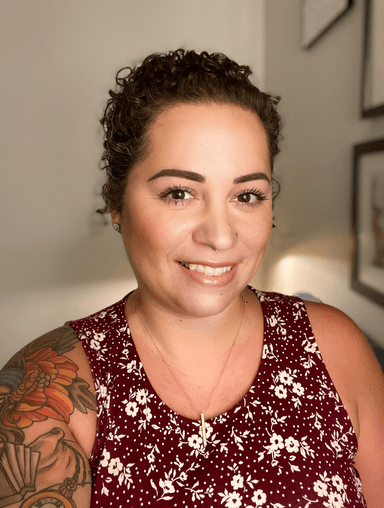
Emerging from the atypical market that was 2020–2022, veteran brokers know many of their agents could use some mentoring in the financial wellness space. After all, the typical National Association of REALTORS® member has worked in the business for just eight years. For many in the business, recent slowing in some markets has been a novel experience. It can be a shock to the system when a full pipeline of business dries up for the first time.
Valerie Belardo, ABR, CRS, broker-owner of RE/MAX at Home in Columbus, N.J., learned first-hand the importance of financial wellness as a professional.
“I was at poverty level when I came into this business in 1987,” she remembers. “By year three or four, I owed $23,000 in taxes, and I didn’t have that.”
Belardo’s business had taken off pretty quickly, and like many agents, she hadn’t planned appropriately.
“I got my commission checks, and I thought all of that money was mine,” she says. “When that tax bill came, I didn’t know what to do.”
Her accountant helped her set up a payment plan with the IRS. She paid interest—and vowed she’d never be in that position again.
It’s easy to fall into the trap that more money is just around the corner. Belardo says she’s known and worked with a lot of agents over the past 30 years who have made that mistake.
“If you get behind on your taxes, you could face an 18% penalty,” she warns. “You could get investigated. I teach my agents this because I didn’t know it then.”
Financial Literacy Can Ease Agent Worries
Belardo doesn’t just warn agents about the pitfalls. She teaches them how to be proactive. “It’s our job as brokers to let agents know what they should be doing with their money,” she says.
She sits down with new agents right after she cuts their first commission check. “That check might have $16,000 written on it, but I let them know the full amount doesn’t belong to them. I tell them that there are three things they need to have: a tax savings account, a SEP account and three months of savings for a rainy day.”
SEP refers to Simplified Employee Pension Plan, a type of individual retirement account that allows small-business owners and the self-employed to lower their tax bill while saving for retirement.
Particularly for agents who’ve never run a business or worked in a commission-based job, making financial literacy a core part of your brokerage’s training will help you with agent loyalty and retention.
RE/MAX at Home provides all agents with information on how to start a SEP account and offers access to a money market account to save for taxes. Agents can opt to have funds automatically withdrawn from their commission checks so that when tax time rolls around, they don’t have to worry about how they’ll pay the bill.
“I sit down with all of my agents quarterly. We write out business plans in the first quarter of the year, and based on how much they want to net that year, we work out a financial plan.”
Valerie Belardo
Providing the Resources Agents Need
Belardo doesn’t focus her financial guidance on new agents only.
“I sit down with all of my agents quarterly. We write out business plans in the first quarter of the year, and based on how much they want to net that year, we work out a financial plan.” She provides expense tracker worksheets and helps agents get started filling them out. She also makes sure her agents’ goals match up with their desired income. She encourages agents to get granular on the volume of business they need to achieve their financial goals.
“‘I’m going to sell more real estate’ isn’t an answer,” she says. “They have to come up with a plan. They have to know how many times they’re going to do mailouts, have a plan for social media, and know where they’re lacking so they can fill the gap.”
Being Proactive Shows Agents You Care
A key takeaway from Belardo’s experience: Don’t wait for agents in financial straits to come to you seeking advice.
Todd Hetherington, GRI, at Century 21 New Millennium in Alexandria, Va., started preparing for an imminent slowdown back in 2021. “We gave out financial literacy courses to our agents and their families—and extended it for this year as well,” he told fellow brokers during a panel at the National Association of REALTORS® Legislative Meetings in May 2022.
Kymber Lovett-Menkiti, who shared the stage with Hetherington, said that as interest rates began to rise, agents’ financial wellness weighed heavily on her mind.
“We doubled down on financial management and wealth management tools and on having conversations with our agents about this stuff,” said Lovett-Menkiti, president of Keller Williams Capital Properties in Washington, D.C. Focusing on the big picture—that planning has to start now and that money coming in today might not come in tomorrow—is helpful to getting agents to act, she says.
Tools at Every NAR Member’s Disposal
Even if you don’t have a fully fleshed out financial planning session for your agents, there are plenty of online tools and resources that you can share. You can also partner with a financial planner or tax accountant to host lunch-and-learn sessions or seminars.
For guidance specifically aimed at real estate professionals, there’s the Center for REALTOR® Financial Wellness. Through this resource, available to all NAR members, you can access a wide range of resources, free or at a nominal cost, including timely articles, webinars, and templates and roadmaps to help REALTORS® plan for retirement, market volatility and overall financial wellness.









